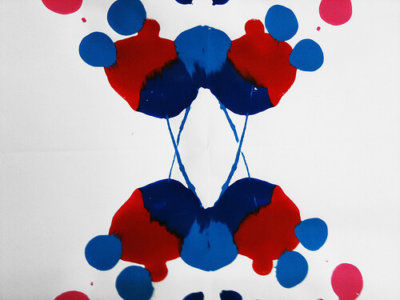What is Free Association and How Can it Help You?

By: Kevin Dooley
by Andrea M. Darcy
Free association is a tool used by some psychoanalytic and psychodynamic therapists.
The purpose of free association is to help you understand what you really think and feel about yourself, others, and the situations you are experiencing, versus what you tell yourself you think and feel.
Note that free association is not used to discover ‘hidden memories”. This is just a popular misconception.
Freud and free association
Free association is attributed to Freud. He recognised that the human mind is designed to strongly avoid pain. It is so good at this that it creates defence mechanisms that trick us into thinking we are not even suffering. These can include projection and transference. Freud developed free association as a way to circumnavigate these mechanisms, and get to the painful memories that needed to be healed.
While Freud developed and popularised free association, it should be noted he didn’t come up with the concept. He was influenced by ideas of hypnosis, by leading edge thinkers of the time who were looking at the powers of the creative mind, and possibly also by writers then using stream of consciousness in their work.
The further history of free association
Free association is the concept behind psychological tests still in use today, including the Rorschach’s Inkblot Test.
Not all psychologists and therapists believe in free association as an effective tool. From the beginning Freud had detractors who felt free association was putting too much pressure on the client. Others feel that the ability to free associate is something that should come naturally, as a sign the client is progressing and healing, not be something a client is forced to do. In fact nowadays classical Freudian free association is mostly just offered by psychoanalysts.
But the concept of free association has infiltrated most forms of therapy. This can look like a therapist asking you to share the first word that comes to mind when thinking of a situation or person, asking you to quickly recall a situation without judging what comes out, or maybe asking you to free-form journal about an experience.
What does a free association session look like?

By: Mr. Brian
First your therapist will encourage you to relax. You can keep your eyes open, but free association can feel easier to do with your eyes gently shut.
You’ll be asked to say out loud the first things that come to mind, without any kind of judgment or worry about whether it sounds weird, illogical, or unacceptable. You don’t try to make any linear, understandable story out of what you are saying, you just keep saying what comes to you.
Your therapist will listen very carefully for things said that could relate to the conflict in your life. After, when you naturally stop speaking and it seems you are finished, the two of you can discuss what the therapist noticed. You can together work to recognise how it might connect to what is going on for you lately.
The benefits of free association
- Loosen the hold of your controlling conscious mind
- Override defence mechanisms like repression and denial
- Experience a space free of self-judgement
- Identify what you really think and feel
- Understand the contrast between what you tell yourself, and what is true for you
- Recognise your true inner conflicts
- Empower yourself to make choices that resolve your conflict over avoid it
- Gain clarity on what new behaviours can now help you move forward.
An example of how free association can solve a conflict
Let’s say that you have been seeing an old friend a lot lately as she has recently left her husband. A few weeks ago you told your therapist about how you were snappy with her for no reason, which made you feel terrible.
Perhaps, during free association a few weeks later, after saying words like, sandbags, tight heart, hungry, yellow balloons… you might suddenly say things like, betrayal, feeling used, vampire.

By: moggs oceanlane
Discussing the associations with your therapist afterward, you might be sure that it’s about a colleague at work who keeps asking you for advice on his projects and is annoying you.
But your therapist might gently bring your attention back to this old friend. You might suddenly realise that you feel she is using you, and that you are angry that when she was married she made no time for you but now she’s divorcing she wants to be your best friend.
You’d been practicing denial because all these thoughts go against your idea of yourself as a ‘nice person’ and a ‘good friend’.
Using this new understanding of how you truly feel about the situation and your friend, you and your therapist can discuss useful new behaviours and action steps. You might commit to meeting her for a coffee and honestly sharing how you feel with her.
This might end up improving your relationship with your work colleague. He was really the subject of projection, where you put your tension with your friend onto him.
Possible problems of using free association
You might feel pressured to produce associations. This might be especially true if you have a codependent personality. In your effort to please your therapist, you could say things that didn’t really come naturally but that you’ve created so quickly you’ve convinced yourself they are a free association.
You can end up going really off track and into memory instead of associations. If you find it hard to relax and let go and have a very controlling mind, you might also control your association. This will be evident in things like making lists, reciting song lyrics, or saying too many things in a row that are clearly very organised.
It is possible to create false memories. You could blurt out something from your imagination and worry it’s a memory. A well-trained and experienced therapist should be able to help you differentiate.
Could free association work for you?
Not all therapeutic tools are for everyone, and it depends on your psychological issues and personality. Again, free association might be harder for you if you need to be in control, or are codependent and struggle not to fall into pleasing your therapist instead of being true to the process.
If you are interested in trying free association, why not try a session with a psychoanalyst, psychodynamic psychotherapist, or integrative therapist with psychoanalytical training?
 Andrea M. Darcy is a health and wellbeing writer as well as mentor who often writes about trauma, relationships, and ADHD. Find her on Instagram @am_darcy
Andrea M. Darcy is a health and wellbeing writer as well as mentor who often writes about trauma, relationships, and ADHD. Find her on Instagram @am_darcy





im really feel lost those days i wish i could know who am i and i wish i can move on in my life
Hi Rina, it’s okay to feel lost sometimes. It happens to many of us. Life is challenging, and sometimes we don’t know who we are anymore. Also, being human is complicated. The truth is that nobody out there knows exactly who they are all the time. We learn who we are when we face challenges, and we can at any time surprise ourselves, or find out things about ourselves we didn’t know. It can be very helpful to learn to listen to your thoughts and feelings, and how to identify your own personal values. It’s also really helpful if you have past trauma to get help to work through how it’s affected you. Sometimes trauma can blind us to seeing ourselves any more. There are many articles on here that might help, for example, use our search bar to find our articles on identity. And have you thought about trying counselling? A counsellor can help you with all of this. Best, HT.
hi again and thank you so much for the answer its mean alots for me . actually you are right one of my big problemes is my past …. even if i try so hard to move on in my life i always end up by losing ..and the same bad thoughts come again and again that im a loser stupide girl i have 26 years but i did nothing in my life im afraid to die without doing nothing . i dont want to be just a memeber in this world but the dark side on me keep telling me its to late for you to start again…. i wish i could remove this feeling
in the end im happy to find your page i will for sure read your articles i wish it could help me . i do want to have a counsellor but i should earne mony first. sorry for my bad english
thanks again and stay safe
We understand that when we are young there can feel a lot of pressure to do things. But we reassure you that 26 is tremendously young.Very few if any people know what they are doing with life yet, actually! So the fact that you already are working at understanding yourself shows you are really doing better than you think and should give yourself some credit! We don’t know what country you are in, but if you are in a place like Canada, UK, USA, France, there are ways to get free to low cost counselling, such as by seeing if local psychotherapy schools have advanced students looking for clients. We have an article that gives ideas for how to find low cost or free counselling here http://bit.ly/lowcosttherapy. You are not your thoughts. Thoughts are just thoughts. You are something much bigger and more powerful. Give yourself time and space to figure it out, we believe you will find your way forward. We wish you courage, HT.
Thank you again for the answer….
You dont have idea how your nice words made my day. In fact maybe all i need in this moment in this days is the support ….Even its look hard now .. but i will try to never givin up whatever happen in the futur i want to believe in myself i want to trust in my self first .I hope i will make it happen so soon
TAKE CARE AND BE SAFE